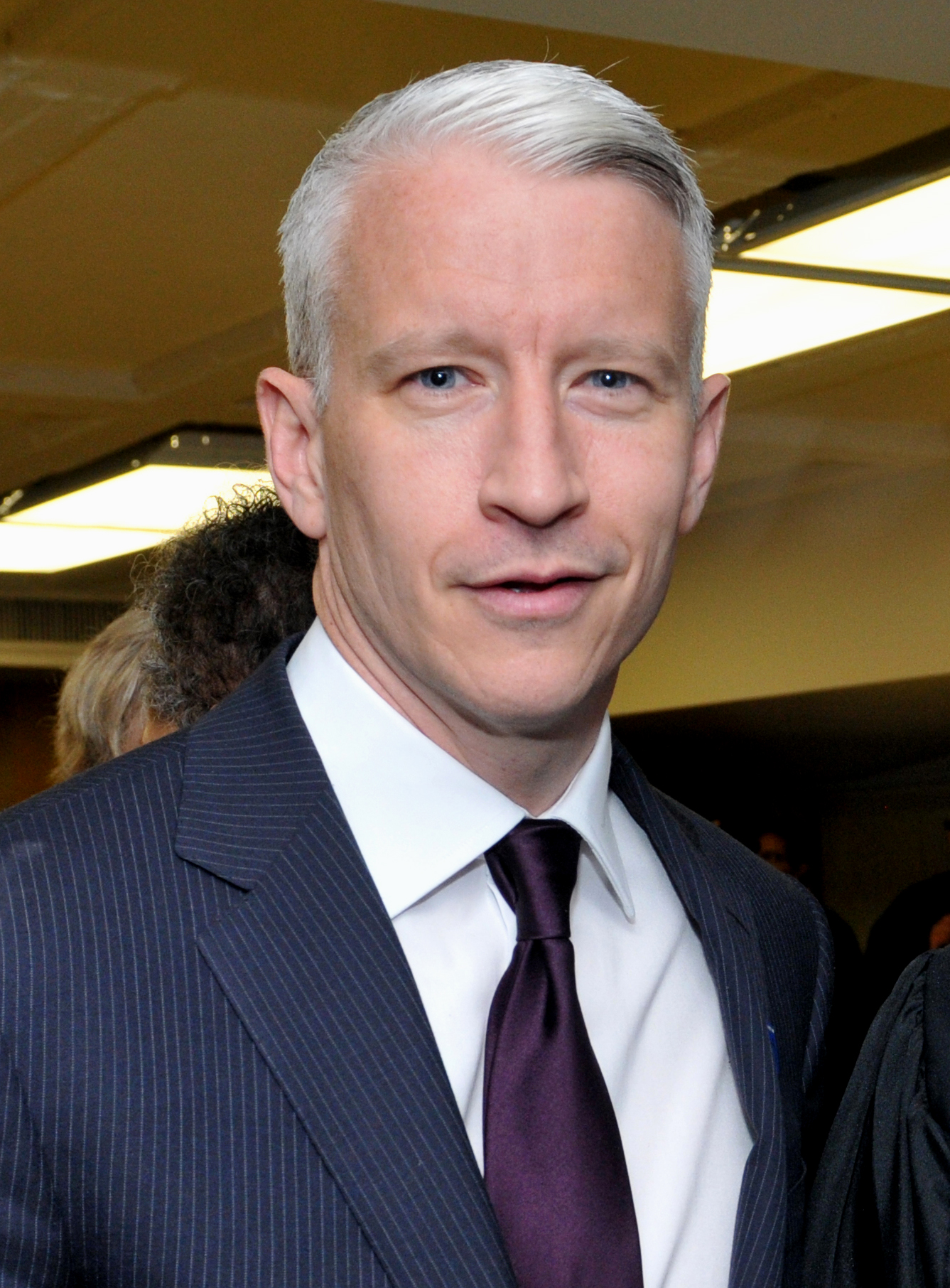A few days later, I read an Anderson Cooper interview promoting his new book, The Rainbow Comes and Goes: A Mother and Son on Life, Love and Loss, compiled from e-mail exchanges with his mother, Gloria Vanderbilt. Her great-great-grandfather was Cornelius Vanderbilt—shipping and railroad tycoon. And Gloria has been famous since birth as heiress to a large trust fund.
Gloria is now 92. She’s been part of a legendary custody battle, ran off to Hollywood at seventeen to be an actress, written several books, and lent her name to the back pocket of designer blue jeans. Anderson and his brother Carter were her children with her fourth husband, writer Wyatt Cooper. She was raised in the Catholic Church, “very religious in the sense of formalized religion at the time, growing up, but I've long strayed,” she said, and then laughed.
Her children were treated like adults, expected to interact with famous writers, producers, and actors. She took Anderson (twice) to see Grace Jones perform at the legendarily sinful Studio 54 when he was just 11 years old. He didn’t realize how unique his upbringing was, eating dinner with Diana Vreeland and Truman Capote, until he got older: “Oh, wait a minute, not everybody has this. This is an amazing privilege and it was an incredible experience.”
His brother Carter jumped off the 14th story balcony of the family’s apartment when he was just 23 years old.
Anderson said in an interview: “There were times I’d go to friends’ houses and I’d see they had bagels in the kitchen and food and cakes and stuff and their mothers knew everything that was going on in their lives, knew who all their friends were, knew their comings and goings.” He was jealous of this, but admits, “I would start to feel smothered and would be eager to go back to my house because my mom was much more creative and interesting and unconventional.”
But even the best party of your life—be that imbibing at Studio 54, or passing potatoes to Liza Minnelli at dinner—doesn’t provide an anchor for those times of doubt and trouble which come for us all. Some children can fashion a stable base out of the fragments. Cooper has gone on to become a CNN anchor making $11 million per year. He probably finds comfort and security in his professional success, his relationship with his partner, and in his wealth and prestige.
But if the kids are alright, mom and dad can do whatever they want, right? Mom isn’t home making bagels; she’s out making money, making deals, and partying with Andy Warhol—and young Anderson unwittingly gave Gloria the stamp of approval, because he was okay. He appears unfazed by whatever life might throw at him—he’s handsome and successful and gay. He now sees how conversing with illustrious dinner guests paved the way for his career. Not so for his brother. Some kids are resilient, some less so.
But Gloria Vanderbilt got to be more than “just” a mom. She was a success. Not at marriage, not at mothering, not in her faith, but a success by worldly standards. She didn’t stay in the Church, and she didn’t raise her children in it, either. And Anderson Cooper going to Studio 54 at eleven years of age gave her permission to go to Studio 54, too.
My daughter will continue to experience Dominican Rite Mass and lines of people queuing up to kiss the Cross. Our hope is that she will make us, her parents, holier as we raise her in the Church. We choose not to see how much she can withstand, to figure out how far we can push boundaries—we’re choosing grace over Grace Jones. And hoping that, like Anderson Cooper, she will look back and think, This is where it all began.
***
Image: By Tulane Public Relations (Anderson Cooper & Tim Clinton) [CC BY 2.0 (http://creativecommons.org/licenses/by/2.0)], via Wikimedia Commons






